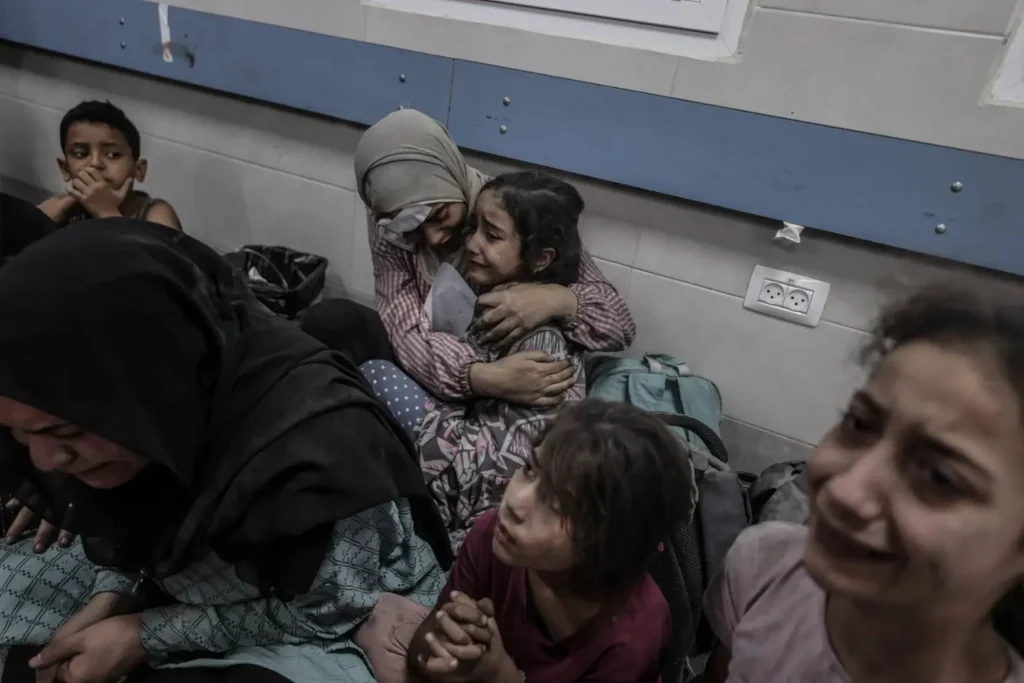WITH eyes wide open and his tiny fists clenched tightly, Mohammed Kullab is just a few days old, having started life in Gaza amid the chaos of the Israel-Hamas war.
“Nobody should be born in such circumstances,” sighed his mother Fadwa Kullab, who has sought shelter at a UN school building in Gaza’s southern city of Rafah.
Kullab now has seven children but said Mohammed’s “birth was the most difficult experience of my life”.
Like other mothers of newborns AFP spoke to in Gaza, she said her baby son had been refusing her breast milk.
“I’m not eating well,” Kullab said, stressing that she had successfully breastfed her other six children.
Breastfeeding mothers are advised to drink at least three litres (more than six pints) of water a day and eat well to produce sufficient milk — but finding clean water and food in Gaza is becoming harder by the day.
The already poverty-stricken and long blockaded Palestinian territory was plunged into its worst ever war.
More than 11,200 Palestinians have been killed, most of them women and children, according to the health ministry in Gaza.
Nearly two thirds of Gaza’s 36 hospitals, already overwhelmed with war-wounded, have been knocked out of service due to a lack of fuel to power their generators.
Gaza City’s biggest hospital Al-Shifa, packed with patients and displaced, is now inside a fierce urban combat zone, with its director reporting scores of dead buried in a mass grave in the complex.
Among those who died were seven premature babies in its disabled neonatal unit, Gaza’s deputy health minister Youssef Abu Rish said.
Countless new mothers in Gaza now fear the very worst, among them Kullab who said she feels helpless and unable to protect her children.
She has struggled to find baby formula and nappies, she said as she cradled her tiny son, swaddled in blankets.
Another woman, Najwa Salem, 37, said her newborn has jaundice, marked by yellowish skin and eyes. The condition can be worsened by low milk intake and dehydration and is often treated with daylight exposure.
To minimise the risk of neurological damage, Salem would like to take her infant boy outside, but said she hesitates because of the “rubbish piling up and the bombing”.
Inside the UN school classroom Salem now shares with about 70 others, the mother worried because the scar from her Caesarian section had become infected.
Although she gave birth in a hospital, she said she was asked to leave after just one night “because they had too many wounded people to care for”.
Outside, the huge amount of dust from the incessant bombing is causing breathing difficulties that spell special dangers for infants.
Another woman, eight-months-pregnant Umm Ibrahim Alayan, complained of coughing fits since she fled her neighbourhood as it was being bombarded.
Her intense coughing may have provoked the early contractions she has suffered, she said, her hands flitting nervously between her rounded belly and her face.
“I’m terrified, all I want to do is hold my baby in my arms,” she said, sobbing. “I feel I could lose the baby at any moment.”







